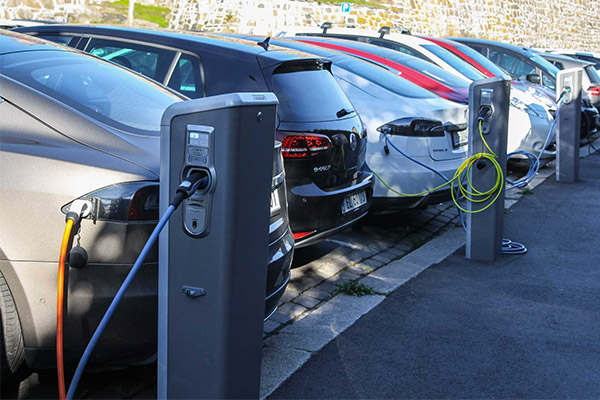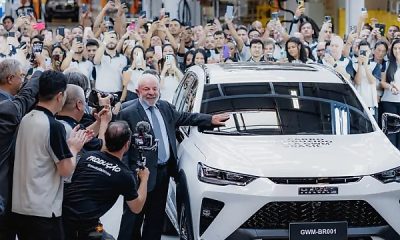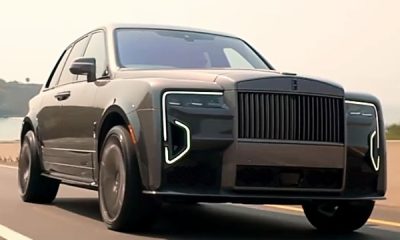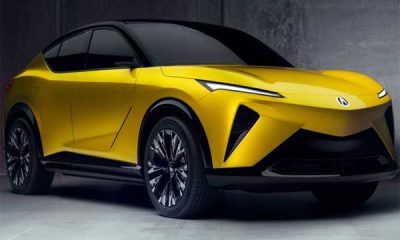Beginning from 2022, Norway wants public sector to purchase only all-electric vehicles.
Norway is leading the world in the transition to electric cars. Its ambition is to halve climate emissions by 2030.
 The government of Norway is making all possible moves to enhance absolute usage of electric vehicles all over the country come 2022. Norway is leading the world in the transition to electric cars. The transition engages large measure to significant incentives that include not only monetary considerations, but also social benefits such as free parking and lower tolls.
The government of Norway is making all possible moves to enhance absolute usage of electric vehicles all over the country come 2022. Norway is leading the world in the transition to electric cars. The transition engages large measure to significant incentives that include not only monetary considerations, but also social benefits such as free parking and lower tolls.
It also has access to high speed lanes on the highway, and support for the expansion of the country’s EV charging infrastructure.
According to Elbil, the website for the Norwegian Electric Car Association, the government is now considering a new policy that would require most purchases of new vehicles by public agencies to be electric starting January 1, 2022.
“Climate emissions have decreased under this government, and they will continue to do so. The transport sector accounts for a third of Norway’s emissions, and the ambition is for these to be halved by 2030.
“The government is now taking an important step that will help us achieve this goal, namely to introduce zero emission requirements for all passenger cars, light vans and city buses purchased by the public sector,” says Minister of Transport Knut Arild Hareide.

He adds, “With these requirements, we estimate that public procurement of zero emission vehicles can contribute to emission reductions of between half and one million tons of CO2 equivalents in the period 2025-2030. It is a significant gain.”
The proposal will now be subject to a 3-month consultation and public comment period before going into effect. There are two exceptions to the new rules. Cargo vehicles that need more range than currently available will be exempt and purchases of city buses that run on biogas will be permitted.
Unni Berge, communications manager for the Electric Car Association, says, “Finally, there will be zero emission requirements for public transport purchases and the Norwegian Electric Car Association will carefully review the new proposal to ensure that it is strong enough.
“We already see that the proposal is incomprehensibly lax on vans, where only vans under 1,760 kg have zero emission requirements. The requirement must apply to all vans that can be driven with a regular Class B driver’s licences.
“There are many good, electric alternatives, and more will come. Ordinary consumers choose electricity like never before, so there is no reason why municipalities and the state should not do it. From now on, the public sector must choose an electric vehicle.”
Nikolai Astrup, minister of Local Government and Modernization, agrees. He says the national and local governments must leverage their market power to drive the EV revolution forward.
“In the Government’s action plan to achieve the sustainability goals by 2030, we have a clear ambition to promote sustainable schemes for public procurement. The Norwegian public sector purchases goods, services and construction work for about NOK 600 billion annually, and therefore has great market power that must be used to achieve the sustainability goals. This proposal supports this.”
In the short run, electric vehicles tend to cost more than comparable vehicles powered by gasoline or diesel engines. Yet over time, lower fuel and maintenance costs mean that electrics are less expensive.
This latest proposal from the government includes a provision to compensate Norway’s cities and towns for those higher purchase costs.
In July, electric and plug-n hybrid sales in Norway accounted for nearly 85% of all new car registrations, led by the Ford Mustang Mach-E. Its citizens have fully embraced the transition to electric vehicles and will likely support the move to require public agencies to purchase electric vehicles as well.

 News1 week ago
News1 week ago
 News1 week ago
News1 week ago
 Celebrities Auto1 week ago
Celebrities Auto1 week ago
 News5 days ago
News5 days ago
 News1 week ago
News1 week ago
 News5 days ago
News5 days ago
 Concept Cars1 week ago
Concept Cars1 week ago
 Celebrities Auto6 days ago
Celebrities Auto6 days ago

 The government of
The government of